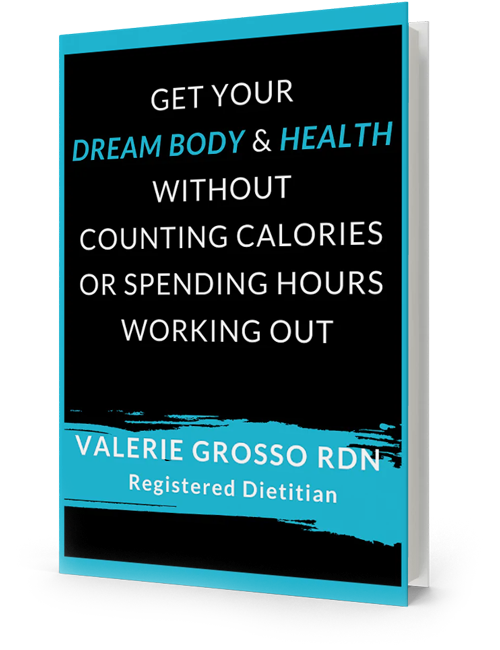Most dietitians and doctors make 5 weight loss mistakes, and you need to avoid them.
- Most follow standard policy and procedures.
- Most follow government guidelines.
- Most are misled by food companies creating ‘diet’ foods in fancy packages.
- Most don’t think differently.
- Most don’t challenge the status quo of nutrition.
Well, NOT ME! No more weight loss mistakes!
Nutrition is a combination of art and practice. Our most common treatments have become ‘standards of care’.…and honestly, many don’t work. These get passed down from one generation of practitioners to the next, from one school to another, and from patient to patient…and so begins the cycle of weight loss mistakes.
These ‘standard treatments’ can survive for decades despite their lack of evidence and even worse, effectiveness. For example, routine tonsillectomy, bloodletting, lobotomy, or using heroin to soothe a cough. At one point in time, these methods were widely used and accepted as ‘standard treatment’.
Many chronic diseases, like obesity and type 2 diabetes are also being ineffectively treated.
For decades, low-fat, low-calorie, high carbohydrate diets (think about the food pyramid) have been the ‘gold standard’ for weight loss. In fact, in hindsight, these recommendations are partly to blame for the obesity and type 2 diabetes epidemics. Not your lack of willpower or laziness, which most practitioners blamed, but their failed ‘standard nutrition’ recommendations. Almost everyone has tried this failed diet advice. They’ve lost some weight, then most gained the weight back, plus some.
Almost all of us have failed with this advice. Yet, despite its failures, practitioners continue to prescribe it.
Low-fat, low-calorie prescriptions are rarely effective and worse, not sustainable. But like most dietitians, I believed weight gain and weight loss was about calorie balance, or rather imbalance. If we eat too much and move too little…we gain weight.
So, if we eat less and move more…we lose weight…..right?
WRONG…this advice has been an absolute failure for ME and my patients.
Ask yourself this…if this simple formula was true, then why do we have fat doctors or fat dietitians?
Surely they have the information and discipline to follow their own instructions.
As a profession, we have become obsessed with discovering and prescribing the latest and greatest drug instead of asking the hard questions.
Despite having the best ‘healthcare’ in the world, why are we fat?
Why do we have obesity and type 2 diabetes epidemics?
Why are our children predicted to live shorter lives than us?
The science of nutrition rarely agrees on anything…
- Dietary fat is good vs. dietary fat is bad
- Carbohydrates are good vs. carbohydrates are bad
- Calorie count vs. don’t calorie count
- Milk is good vs. milk is bad
- Eggs are good vs. eggs are bad
- Meat is good vs. meat is bad
- Etc. etc. etc….
If we really want to help people lose weight and transform their health, we must focus on the evidence instead of opinion, dogma, marketing, and business’s bottom lines. Our health must become priority #1.
So, it’s time to ask the hard questions….Why are so many of us obese? What makes us gain weight in the first place? Why do we have so many chronic diseases?
In dietitian school, the root cause of obesity and other chronic diseases are not discussed.
Regarding obesity in particular, there has been a complete lack of understanding of its root cause.
The ‘calories in vs. calories out’ theory is too simplistic and now has been proven wrong.
All chronic diseases have several contributing factors, but when it comes to obesity, we blame the victim.
“You eat too much and move too little.”
“You are lazy.”
“You have no willpower”…and the blame game goes on.
But, this couldn’t be further from the truth. Obesity takes decades to develop but we often base our treatments on research conducted over several weeks, not decades. Think about this…if we study the development of rust, we must observe metal over a long period of time. Otherwise, we incorrectly diagnose that water is not the cause of rust.
Obesity and type 2 diabetes are long-term diseases. Short-term research will NOT give us accurate data.
Additionally, studies done on animals don’t always apply to humans. A study done on 5 rats hardly qualifies as evidence to apply to humans.
Challenging the status quo of nutrition can be difficult, but I can no longer ignore the health ramifications of the ignorance I see with standard care.
We must discover and understand why we gain weight, why we get sick, and what we can do about it.
Your health struggles are not your fault…..but they are your responsibility.
YOUR NUTRITION MISSION…should you choose to accept it: Lets rebel together, challenge the status quo, and feel unstoppable!
Valerie Grosso RDN
The Rebel Dietitian With A Mission
I hope you found this helpful. If you did, would you do me a huge favor and share it with your friends? It would make my day!
Want nutrition support and guidance? I can help 👇👇👇
- Download my FREE Ebook to get started: https://healthrebelblueprint.com/free
- Check out DIY courses: https://valeriegrosso.com/courses
- Contact me for a complimentary 30-minute call to discuss 1-on-1 coaching: https://valeriegrosso.com/coaching
🥳🥳Connect With Me On Social Media 🥳🥳
👋 Facebook: https://www.facebook.com/valeriegrossord
👋 Instagram: https://www.instagram.com/valeriegrosso
👋 LinkedIn: www.linkedin.com/in/valeriegrosso
👋 Twitter: @valeriegrossord
👋 YouTube: https://www.youtube.com/channel/UCP1WB1OswXEq985r2x1G94w
UNLEASH THE POWER OF NUTRITION, IGNITE FAT BURNING, DEFY DISEASE, FEEL UNSTOPPABLE!

